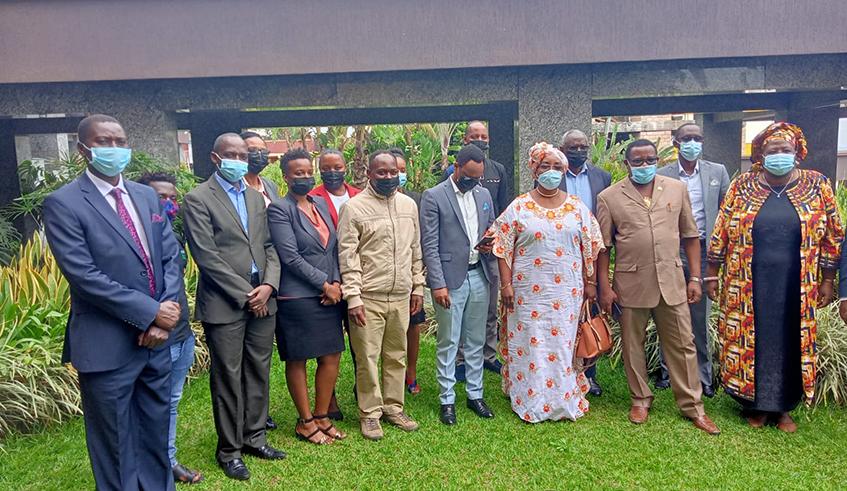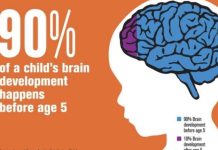Africa-Press – Rwanda. Members of the East African Legislative Assembly’s Committee on Agriculture, Tourism, and Natural Resources on Tuesday, October 26, agreed that it makes sense to have affordable promotional tourism packages so as to revive the industry after the impact of the Covid-19 pandemic.
This was noted as three members of the committee held a meeting with industry players in Kigali at the start of the regional parliament’s oversight activity to assess the performance of tourism in the six-member EAC bloc.
According to Amb Fatuma Ndangiza, a member of the regional Assembly, affordable promotional rates and packages can accelerate the revival of the tourism industry now and during the post-Covid-19 period.
Shedding light on current issues, Olivier Kanyabikali, the manager of Countryside Tours-Rwanda, told the lawmakers that private operators such as hotels and tour companies developed packages for the domestic market in order to mitigate the low numbers of international tourists during the Covid-19 pandemic period.
Despite the effort to make them affordable, Kanyabikali noted, “these packages remain visibly expensive, especially for Rwandans.” Before March 2020 when Covid-19 first struck Rwanda, he recalled, a permit for mountain gorilla trekking was set at $1,500 both for Rwandans and outsiders.
“Currently, the gorilla permit for Rwandans is $200 per person, but it would be appreciated if it was put lower during this period. This would create an opportunity for Rwandans to access the lifetime experience before it will be set to the normal $1,500 again,” he said.
Further cuts on mountain gorilla permit fees would enable tourism operators to have a first-hand experience of the visit for their tour guides, tour consultants and others involved in the sale of mountain gorillas permits, he said.
On the business side, Kanyabikali noted, a tour operator is given an incentive of a free eleventh permit after selling 10 gorilla permits, which is an equivalent of a 10 per cent discount.
“In order to benefit everyone, it would, instead, be better to grant a direct discount even on a sale of one permit especially during this season when it is tough to amass the 10 required permits.”
Kanyabikali who has been working in the sector since 2004 also told lawmakers how, for Akagera National Park, “Current pricing requires a second payment when you spend your night outside the park, even in the locally owned lodges.”
He said: “This negatively impacts the competitiveness of the locally owned lodges around the park and it inflates tour operator pricings as accommodation in Akagera National Park is relatively expensive.”
Accommodation inside the park goes for around $200 a night. Kanyabikali noted that it is better visitors to the park are allowed to spend a night outside the park and use the same entry ticket without being required to pay again, the next day.
Amb Ndangiza noted that: “I think it makes a lot of sense. It is good we have RDB here.” “The pandemic has short and long-term impacts and you can discuss and look at what best helps us recover from the shocks of the pandemic as well as retain revenues.”
Philbert Ndandali, the Emerging Tourism Analyst at the Rwanda Development Board’s tourism promotion division, told the meeting that his team “took notes of everything” and are going to have discussions with partners including African Parks, the managers of Akagera National Park.
“This is something we can discuss. And even in the past, whatever decisions we made were because of our earlier engagements with partners. Clearly, with this Covid-19, you need to adapt to the situation,” Ndandali said.
Chantal Uwase Kabagambe, Managing Director of Eco Community Tours, talked about the incentives or promotional rates industry players received from RDB during the pandemic, explaining how they “tried to boost our business during this past month.” The RDB recently extended promotional rates up to December 31, 2022.
These include Gorilla trekking in Volcanoes National Park where nationals and EAC citizens can pay $200 while foreigners pay $500 for the same. Among others, corporates have a 10 per cent discount on bulk purchases from 30 permits while families have a 15 per cent discount for couples and children above 15 years of age.
“We especially received tourists from Africa in June, July and August due to the promotional rates of visiting mountain gorillas at $500,” she told The New Times on the sidelines of the meeting. Her request to RDB was to consider extending the same promotional rates to low season months – February, March, April, May, October and November.
She said: “We believe this can boost tourism in Rwanda. Many African nationals will visit and it’s an opportunity to package Rwanda as a destination and be able to sell beyond gorillas and sell other tourist attraction areas within Rwanda.”
The lawmakers also acknowledged East African Tourism Platform boss Yves Ngenzi’s take that travelling in EAC and in Africa is still very expensive and liberalization of the airspace is needed. Ngenzi noted that a return air ticket from Kigali to the Tanzanian city of Arusha can go up to $700.
“Secondly, harmonization of regional tourism strategies on Covid-19, protocols and recovery plan is needed. Up to now these aren’t successfully harmonised. A tourist is required to do up to four tests while visiting a destination,” Ngenzi noted.
Tourism, one of the most significant sectors in all EAC economies, contributes an average of about 17 per cent to export earnings. Its contribution to GDP is also substantial, averaging around 10 per cent. Tourism generates about 7 per cent of employment in the region and provides an important linkage with other sectors of the economy including agriculture, manufacturing, insurance, and finance.
But the sector was hit hard by the outbreak of Covid-19, with the unparalleled introduction of travel restrictions, imposition of lockdowns and the closure of airports and national borders across the world.
During the meeting in Kigali, and others being conducted concurrently in other EAC countries, the lawmakers want to: understand the performance of the tourism sector; find out the impact of the pandemic on the sector, and assess how Partner State implement the EAC Tourism Recovery Plan which was approved in July.
For More News And Analysis About Rwanda Follow Africa-Press






